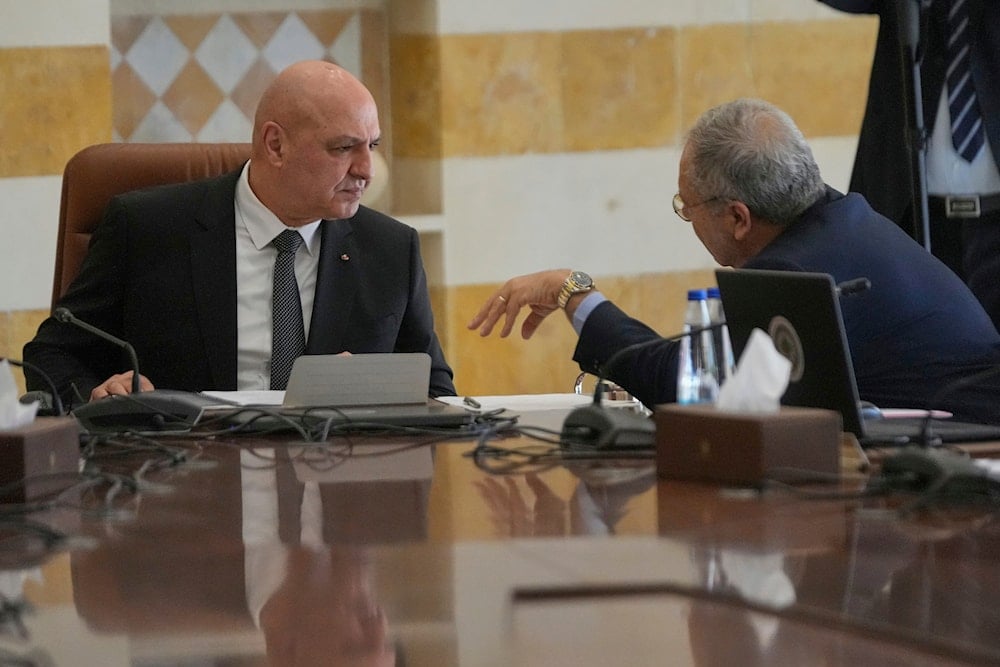Lebanon ties progress in implementing US paper to Israeli commitment
Lebanon welcomes a phased army plan to enforce arms control, citing Israeli aggressions as a key obstacle to implementation and regional stability.
-

Lebanese President Joseph Aoun, left, speaks with Tarek Mitri, the deputy prime minister, during a cabinet meeting to discuss the army plan for disarming Hezbollah, at the Presidential palace in Baabda, east of Beirut, Friday, Sept. 5, 2025 (AP)
The Lebanese government has endorsed a plan, prepared by the Lebanese Army, to establish the state's exclusive authority over the use of arms through a series of phases; however, it has decided to keep the specific details of the plan confidential.
Following a session dedicated to discussing the plan on Friday, as detailed in a readout delivered by Information Minister Paul Morkos, the government clarified that the Army Command will submit a monthly report to the cabinet on the progress of the plan's implementation.
After reading out the session's resolutions, Morkos told reporters that the army would commence the plan's implementation based on the available resources, noting that while it would operate within the framework decided during the August 5 session, it retains the right to operational discretion.
'Israel' primary constraint to implementation
The information minister also pointed out that the Army Commander had outlined the constraints hindering the plan's implementation, with Israeli aggressions being the primary one, adding, "After all, this is a military plan, not a political one, and the government has already made its decisions on the matter."
The Lebanese prime minister had asserted at the beginning of the session that investment and reconstruction are impossible without first achieving security and the state's monopoly on arms.
It is worth noting that at the start of the session, the ministers of the Hezbollah-Amal coalition, along with a fifth independent minister, Fadi Makki, withdrew from the proceedings before Army Commander Rodolphe Haykal started to discuss the plan.
Commenting on the withdrawal, Information Minister Paul Morkos stated that the ministers had left the session but not the government, adding, "We will meet with them in the coming days."
'Israel' has not adhered to the US paper
Regarding the US proposal, the cabinet stated that it was based on the principle of mutually reinforcing steps from all parties and that its implementation is contingent on the agreement of the relevant parties, adding that while Lebanon has endorsed the proposal's objectives and prepared the army's plan, the Israeli side has not taken corresponding steps.
It affirmed that "Israel's" conduct reflects a complete absence of any genuine intention to commit to de-escalation, thereby undermining all stability efforts, asserting that its continued violations pose a severe risk to regional security and stability.
In this context, the cabinet emphasized that "any progress in implementing the US envoy's proposal is contingent upon the Israeli side's compliance," affirming that Beirut has not and will not make any concessions to "Israel".

 3 Min Read
3 Min Read








